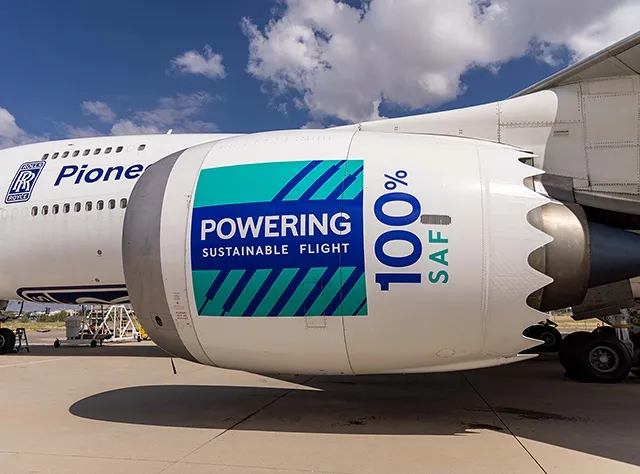Rolls-Royce, a prominent British aerospace company, has announced its decision to divest its electric jet engine unit, signaling a strategic shift toward sustainable aviation fuels (SAF). The move comes on the heels of a historic Virgin Atlantic flight from London to New York, powered by a low-carbon fuel engine manufactured by Rolls-Royce.
Facing the economic fallout of the COVID-19 pandemic, Rolls-Royce, like many in the aviation industry, experienced challenges, leading to a reduction of 9,000 jobs. Under the leadership of CEO Tufan Erginbilgiç, the company has undertaken a series of measures to streamline operations and enhance profitability, including the recent divestiture of the R2 Factory and other projects.
The latest development involves the divestment of Rolls-Royce’s electrical business, responsible for developing propulsion systems for flying taxis and smaller aircraft. Erginbilgiç emphasized the necessity of making strategic choices in resource allocation, stating that the electric business could offer better value to a third party.
Rolls-Royce’s renewed focus on sustainable aviation fuels aligns with its commitment to reaching sustainability goals and raising operating profits. The company has adjusted its annual profit target to a range of £2.5 billion to £2.8 billion, a significant increase from £837 million in 2022. Erginbilgiç sees this as a pivotal moment in the company’s history, aiming to create a resilient and growing Rolls-Royce with the financial strength to shape its future.
The decision to concentrate on jet-fuel-burning engines for passenger planes reflects Rolls-Royce’s strategic positioning, with a particular emphasis on achieving carbon reduction goals through sustainable aviation fuels. The company, while engaging in hydrogen technology collaboration with EasyJet, views hydrogen as a longer-term solution for long-haul flights. In the meantime, it believes sustainable aviation fuels will play a crucial role in meeting net-zero climate goals.
Rolls-Royce plans to invest the proceeds from the sale of the electric unit and other divested businesses into its next-gen UltraFan engine, a technology demonstrator designed to burn less fuel. The company aims to become the first jet engine manufacturer to confirm compatibility with 100% SAF for its in-production engines for long-haul aircraft and business jets. Rolls-Royce has set a target to achieve net-zero carbon emissions by 2050.

